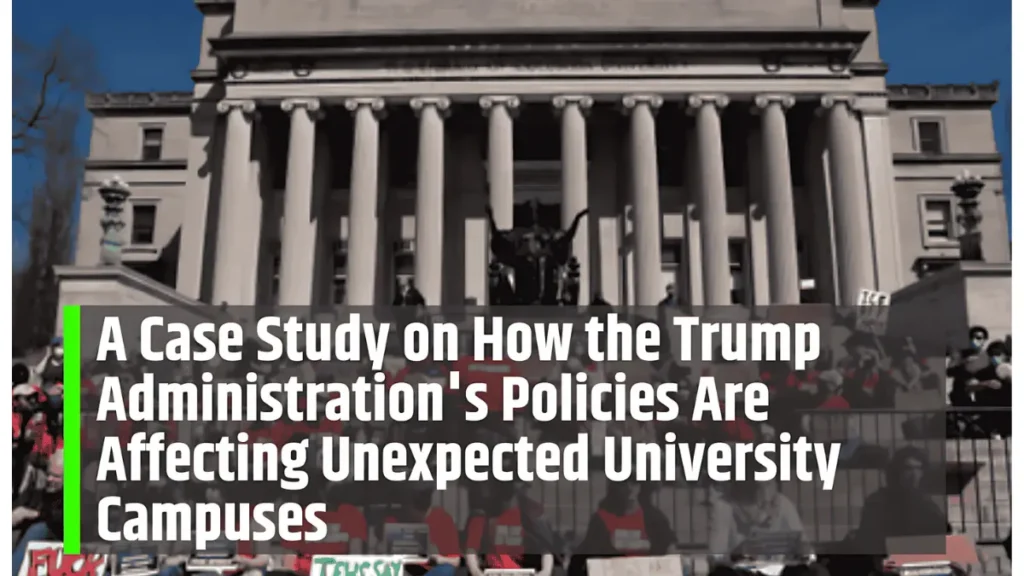When people think about federal education policy, Case Study they often picture the nation’s top Ivy League schools. But the reality is that the Trump administration’s higher education agenda in 2025 is reshaping life at regional public universities, faith-based liberal arts colleges, and STEM-focused institutes. These campuses—once thought to be insulated—are now facing new challenges in DEI compliance, student visas, Title IX rules, loan repayment, and research funding.
Regional Public Universities: Balancing Compliance and Community Needs
Regional schools that serve commuter students and first-generation families are seeing major shifts.
- DEI retrenchment: Scholarships and mentoring programs have been rewritten to avoid race-based criteria.
- Title IX narrowing: With fewer cases qualifying under the new rules, student conduct offices are taking on more responsibility.
- Loan stress: As federal student loan repayments resume, more students are stopping out or turning to emergency aid programs.
Impact on students: These universities are redirecting DEI budgets into broader “student success” programs such as tutoring, childcare support, and advising. Faculty, meanwhile, are spending more time on policy training and less on course innovation.
Faith-Based Colleges: Free Speech and Donor Pressure
At small religiously affiliated liberal arts colleges, the ripple effects look different.
- Governance pressure: Trustees are closely monitoring diversity offices and campus speakers.
- Speech protocols: Stricter protest rules and guidelines for controversial topics are now in place.
- Admissions messaging: DEI language is being reframed around “equal access” without race-specific references.
Impact on students: Some families welcome the shift, while others worry about fewer inclusion resources. Faculty report growing self-censorship on sensitive issues like race and gender, creating a chill in the classroom.
STEM-Focused Institutes: Visa Delays and Research Risks
Campuses with high numbers of international students and major federal research portfolios face pressure in two key areas.
- Student visas: Proposed fixed four-year limits for F-1 and J-1 visas create renewal headaches for graduate and PhD students.
- Research grants: Funding contracts now include compliance checks tied to speech and security policies.
- Hiring changes: Departments are adopting skills-only hiring rubrics to avoid legal challenges.
Impact on students and faculty: Visa delays can stall research projects and lab work. Institutes are hiring more compliance staff and creating backup plans to keep research moving when international students face immigration hurdles.
Common Trends Across Campuses
Despite their differences, all three campus types share similar challenges:
- Policies rewritten in legal language: Job ads, syllabi, and scholarship pages are being updated for compliance.
- DEI reframed as student success: Support is shifting toward race-neutral categories like first-gen and low-income status.
- Administrative workload rising: Faculty and staff are devoting more time to compliance and less to academic innovation.
What Students Should Watch For
- Admissions yields: Are international and first-gen student enrollments dropping?
- Loan defaults and appeals: More repayment stress may drive higher dropout rates.
- Visa processing delays: International students should build extra time into their plans.
- Research contracts: Funding could now be tied to compliance with campus protest rules.
Conclusion: Trump-era higher education policies are not just affecting elite universities—they are reshaping unexpected campuses across the country. From commuter schools to faith-based colleges and STEM hubs, the impact is clear: more compliance, less flexibility, and growing pressure on students and faculty alike. For many institutions, success in 2025 will mean reframing DEI as “student success,” managing visa and funding risks, and keeping students informed through transparent communication.
Disclaimer: This article is for informational purposes only. For official updates, students should consult their university’s administration, the U.S. Department of Education, and USCIS guidelines.
Read More:
- VA Shrinks Workforce by 30,000: How It Could Impact Veterans and Services in 2025
- Trump Research Grant Freeze Hits Harvard & UCLA: What It Means for U.S. Science
- Declining International Student Enrollment Could Cost the U.S. $7 Billion in 2025
- US Driving License Rule Changes September 2025: What Seniors Aged 70+ Need to Know
- Why International Student Visas Dropped by Over 40%: The Real Impact on U.S. Universities






